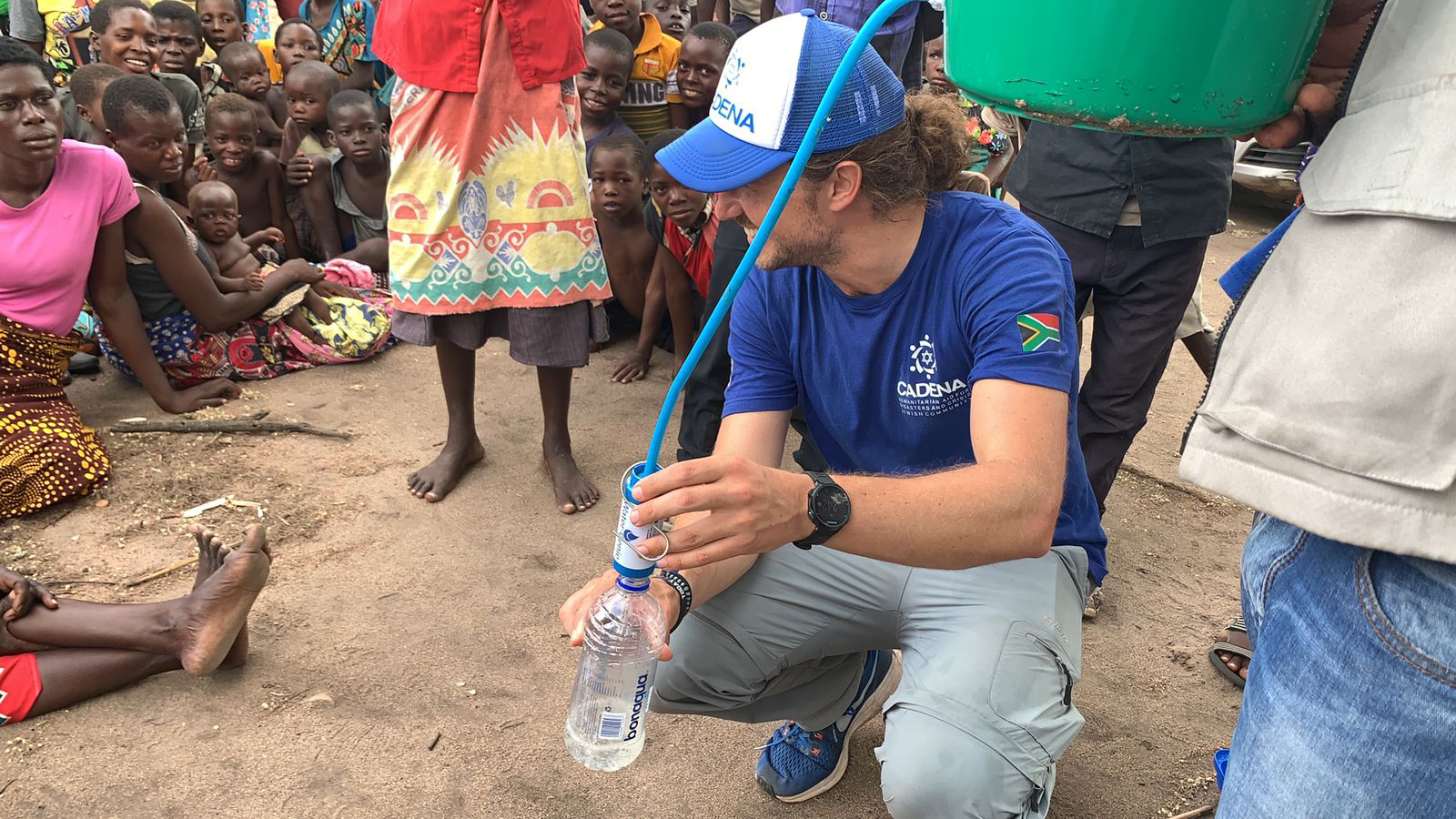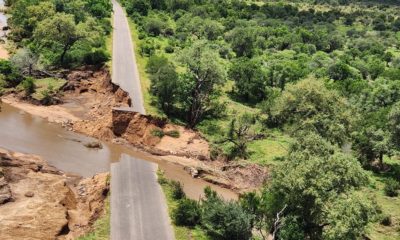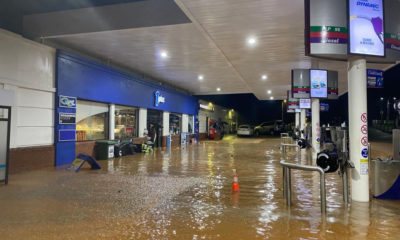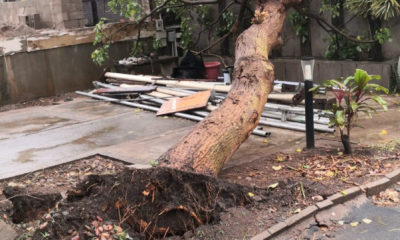
Featured Item

Taking tikkun olam to the eye of the storm
On the night of 22 January 2022, tropical storm Ana hit Madagascar, Mozambique, and Malawi, bringing torrential rains and causing major flooding. Due to its poor infrastructure and lack of preparation, Malawi suffered the most damage. Though it would be easy to think that it isn’t our concern, for Jewish humanitarian-relief organisation Cadena, providing assistance was a top priority and a chance to put Jewish values into action.
“Cyclone Ana hit Malawi about two weeks ago, and it was one of the most affected areas,” says Cadena’s director of international alliances, Miriam Kajomovitz. The organisation recently opened a branch in South Africa, which offers hope and help not just to this country but to the continent at large. It has previously sent volunteers to assist aid missions in Kenya and Mozambique, so sending a group to assist on the ground in Malawi was just another way to make an impact where it was needed most. Cadena has just returned from five days in the country, where 110 800 people have been displaced.
“Before the cyclone, Malawi was already a vulnerable place without food, water, and with a tremendous lack of hygiene,” says Kajomovitz. “The cyclone made it even more vulnerable. Many lost their homes, there’s no electricity, the water in the rivers was completely contaminated, and people were getting sick from it. Many are still missing.”
It’s one thing to hear about such a disaster, but quite another to see it in person. “We arrived a few days after the cyclone,” says Steffi Czarny, who led the mission. “People were trying to rebuild their houses, although many places were still flooded. Most of the houses are completely destroyed. There are more than 127 displaced person camps, and each camp has about 7 000 people. It’s estimated that they will need to stay there for about three months until they somehow manage to get their houses back.
“Everywhere we went, we saw desperation,” she says. “People were starving because the fields are damaged, so there’s no way to cultivate food and they have nothing to eat. A lot of people were also dehydrated because they didn’t have access to drinking water. Many were ill. But we also saw resilience – people trying to look for solutions to get back on their feet.”
Klaas Mokgomole is South African and also led the mission. “It’s meaningful to work for Cadena because we go out there and assist communities,” he says. “We’re on the ground for people. It’s a good thing that the Jewish community is responding to all this need.
“The most challenging part was the desperation of not being able to help more or enough,” he says. “More than 50 000 are hungry and desperate, but not many organisations and people are helping. Cadena had limited resources for this mission because of a lack of funding and interest in the situation in Malawi. With the resources we had, we decided to focus on drinking water and medical support. We couldn’t help with food.”
Though they devoted resources to the essentials of water and medical care, “it wasn’t enough. The lines for our doctor were made up of more than 300 hurt or sick people,” Mokgomole says. “Hearing everyone asking us for food and seeing how hungry they were was hard.”
Cultural differences and the language barrier were also challenges, “but we managed well. People manage to communicate their problems and they also understood perfectly how to use the water filters.”
This was one of the most inspiring aspects of the mission. “In spite of not been able to help everyone, to see how much it meant for those we were able to help was fulfilling,” says Czarny. “There’s no better feeling than seeing the relief felt by someone because he was given medical attention. Also, to see people that haven’t had water for days drinking the first sip of clean water from the filter.”
Cadena also brought solar lamps which provided much needed light and electricity. The water filters offer an immediate and long-term solution. “They’re not for just now, but for years ahead. We taught people how to use them, which is priceless, because drinkable water is a basic need. Also, by using clean water they will get less skin infections, less stomach diseases, and improve their hygiene in general. Living in a camp with another 7 000 people without resources … we cannot even start to explain how bad it gets,” she says.
Finally, “we brought them hope”, says Mokgomole. “The fact that an organisation from so far away came especially to give them water or a lamp made people feel hopeful and happy because they felt someone cared.”
“A humanitarian crisis like this is something that the Jewish community of South Africa shouldn’t be indifferent to – first, because Malawi is a neighbouring country, and second, because there are resources to help,” says Czarny, who is Jewish. “Tikkun olam [healing the world] is something that should characterise every Jewish community, and that means that we shouldn’t be indifferent to any problem, not just the ones nearby. Human suffering doesn’t see race or culture, and we should be emphatic [about that] not only as Jews but as humans.”
“Disasters caused by a natural phenomenon can be the most devastating, and although it affects the more vulnerable communities as a consequence of an historic inequality, nobody is exempt even if they have resources. Malawi is very close to South Africa, and the Jewish community could make a huge difference to these people, either through Cadena which is a Jewish organisation, or any other way they want,” says Kajomovitz.
“It would be great for the South African Jewish community to be known as the one that helped,” she says. “Cyclone season has just started, and we can help the many vulnerable countries impacted by them. Cadena will continue to work in Malawi in this emergency phase, and we’re also going to Madagascar. We need help with resources and volunteers. We’re also dealing with disasters in other regions of the world. For some reason, people are indifferent.”
To get involved or support Cadena, email miriam@cadena.ngo or projects.sa@cadena.ngo










